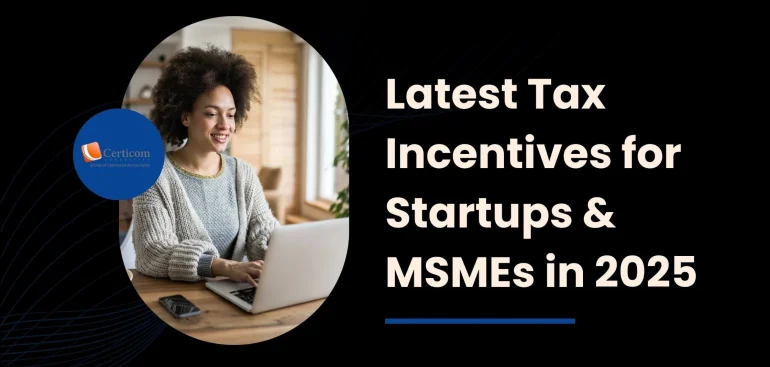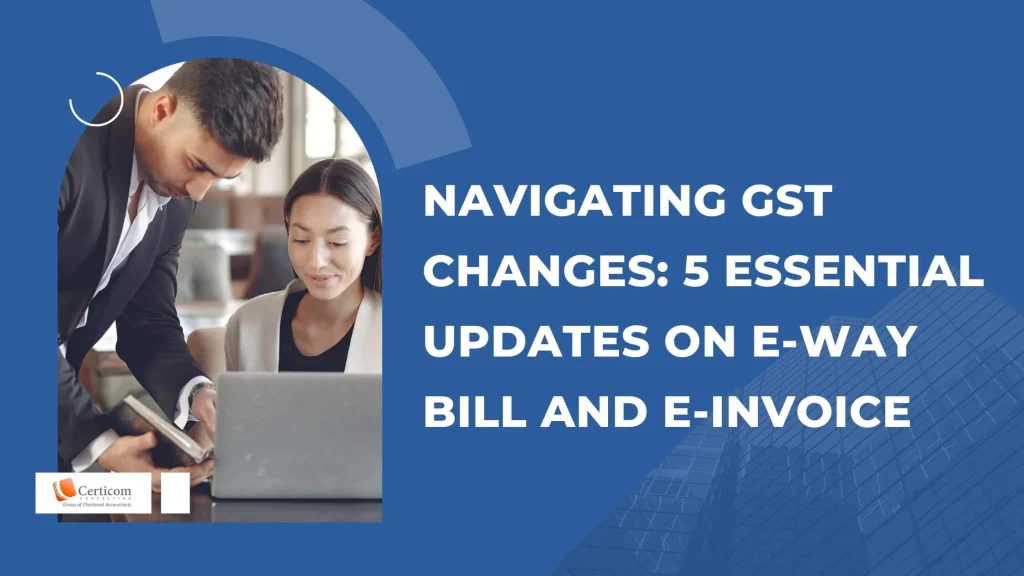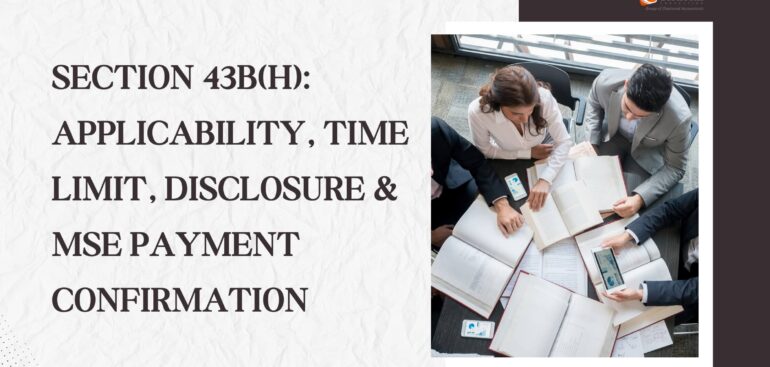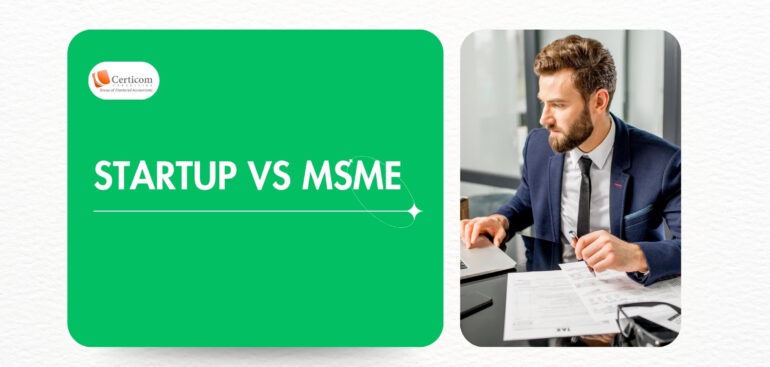Latest Tax Incentives for Startups & MSMEs in 2025
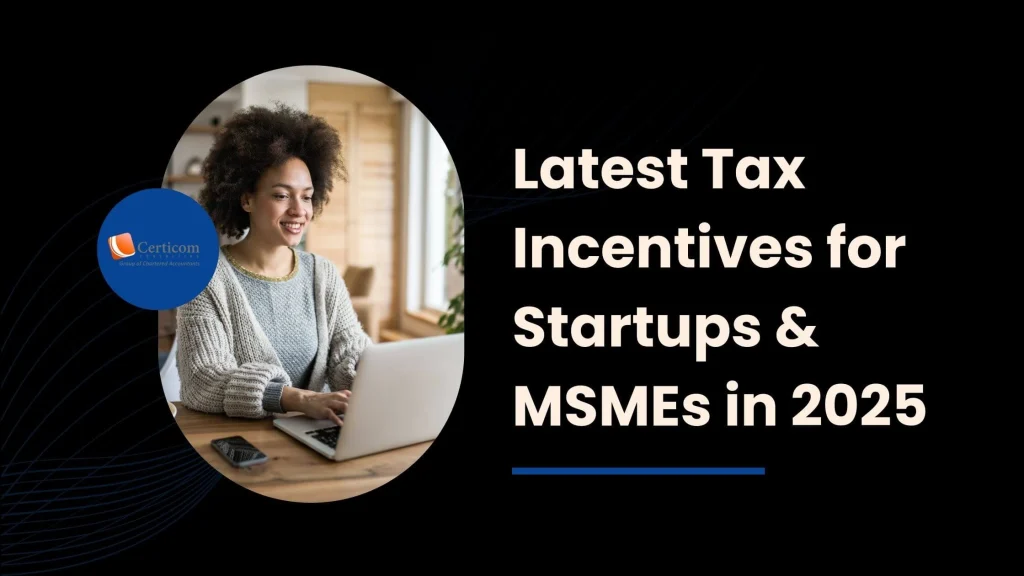
The Indian government continues its commitment to fostering entrepreneurship and supporting the growth of Micro, Small, and Medium Enterprises (MSMEs). The Union Budget 2025 introduces a range of tax benefits and incentives aimed at reducing financial burdens and encouraging business expansion. This article explores the latest tax incentives designed to support startups and MSMEs in 2025.
1. Extended Tax Exemption for Startups
To further promote innovation and new business ventures, the government has extended the income tax holiday for eligible startups under Section 80-IAC for another year. Startups incorporated until March 31, 2026, can avail themselves of a 100% tax exemption on profits for any three consecutive years within the first ten years of operation.
2. Lower Corporate Tax for MSMEs
Recognizing the importance of small businesses in industrial growth, the government has lowered the corporate tax rate for newly established domestic manufacturing MSMEs. These businesses can now benefit from a reduced tax rate of 15%, down from the standard 25%, thereby lowering the tax burden and promoting industrial expansion.

3. Increased Limits for Presumptive Taxation
To simplify tax compliance for small businesses and professionals, the government has raised the presumptive taxation limits under Sections 44AD and 44ADA:
- Businesses: Threshold increased from ₹2 crore to ₹3 crore.
- Professionals: Threshold raised from ₹50 lakh to ₹75 lakh.
This change reduces compliance costs and eases the tax filing process for eligible entities.
4. Enhanced Tax Benefits for Investors
To attract more investments into startups and MSMEs, the government has introduced new investment-friendly measures:
- Extended capital gains tax exemption (Section 54GB) for investments in eligible startups.
- Tax rebates for angel investors and venture capitalists funding early-stage startups, fostering a stronger investment ecosystem.
5. Simplified GST Compliance
To ease GST-related burdens, new relaxations have been introduced:
- Businesses with a turnover of up to ₹5 crore can now file quarterly GST returns instead of monthly filings.
- Simplified input tax credit (ITC) procedures to improve compliance.
- Waivers on late fees and penalties for delayed GST filings, reducing the financial strain on small businesses.
6. Tax Perks for Digital & Sustainable Startups
To support digital transformation and sustainable business practices, startups in specific industries receive additional tax benefits:
- Special tax deductions on research and development (R&D) expenses for green technology and AI-driven businesses.
- Reduced tax rates for startups in renewable energy, electric mobility, and climate-related sectors, encouraging sustainable business solutions.

7. Better Loan Accessibility & Credit Support
Access to credit has been further facilitated for MSMEs through various initiatives:
- Increased funding for the Credit Guarantee Fund Trust for Micro and Small Enterprises (CGTMSE), enhancing financial support.
- Lower interest rates on business loans under priority sector lending programs.
- Tax relief on interest paid on business loans, making borrowing more affordable for entrepreneurs.
The 2025 tax reforms offer significant relief to startups and MSMEs by reducing financial constraints, simplifying compliance, and encouraging investment. Entrepreneurs should leverage these new incentives to optimize their tax planning and accelerate their business growth. By utilizing these schemes, startups and MSMEs can strengthen their financial standing and contribute to India’s economic progress.
Related Post
Navigating GST Changes: 5 Essential Updates on E-Way Bill and E-Invoice
Pros and Cons of Presumptive Taxation Scheme for Professionals
Understanding Form 3CD Amendments: What Changed from April 1, 2025
Book A One To One Consultation Now For FREE
How can we help? *


